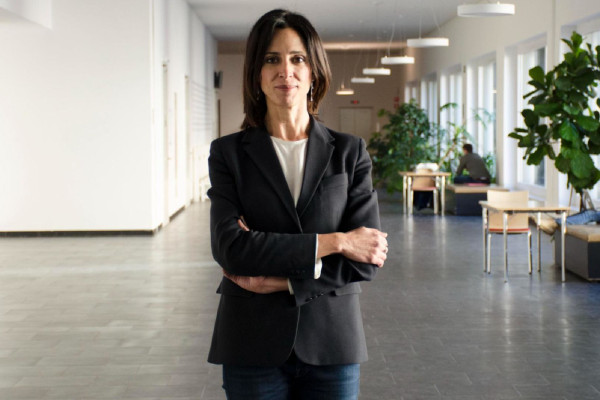What is the role of the Free University of Bozen-Bolzano within the Smart Protein Project?
We are responsible for the application of plant-based ingredients such as legume flours and mycelium cakes in order to develop savoury, nutritious, and sustainable plant-based food products to replace animal-protein products.
More specifically, we coordinate the identification of unique characteristics of the target protein upon isolation and protein functionalisation, including nutritional quality, biological value, sensory and techno-functional properties, protein structure, and protein-protein interaction, in order to determine the best and most innovative food-and-beverages applications for each protein source. We also investigate the new plant-based products at human-gut level by using the gastro-intestinal simulator system (SHIME).

Source: The gastro-intestinal simulator system (SHIME). (Copyright: Free University of Bozen-Bolzano)
Why did you decide to join the Smart Protein project?
The Smart Protein project offers a clear opportunity to move towards a sustainable food chain, which is a key element of resolving the environmental challenges we currently face. We wanted to contribute towards this important programme by applying our long-term expertise in dairy, baked goods, and pasta.
What are the benefits that this project brings to your organisation and to Europe and European citizens in general?
Animal agriculture is inherently inefficient, particularly in terms of feed conversion having a high environmental impact, while, at the same time, global population continues to increase. The Smart protein project aims to industrially validate innovative, healthy, EU-produced plant protein and microbial biomass protein (food-grade yeast and fungi) that is cost-effective and resource efficient, in order to produce ingredients and products for direct human consumption. In this way, EU citizens will benefit from a wide range of tasty and healthy plant-based protein products in the form of meat and dairy alternatives, as well as other functional ingredients. These products will be produced sustainably, with some of them including the up recycling of food-industry sidestreams. In order to ensure consumer trust, these products will be exclusively produced in Europe.
What are the main challenges faced in the process?
There are many challenges in this project. For example, with plant-based cheese, we are trying to replace a considerable percentage of milk with a plant-based ingredient while maintaining cheese structure. We are particularly excited about the application of lactic-acid bacteria in order to produce a hybrid plant-based cheese prototype. This is challenging because our strains must be able to outperform in dairy and vegetable-like matrices while ensuring a good cheese-like matrix.
What results from the Smart Protein project are you and your team most excited for?
Our first plant-based meat substitutes will soon be delivered to consumers. We are excited to see the results of the consumer-acceptance study of our prototypes compared to the products currently available on the market.
 Raffaella Di Cagno has been working at the Free University of Bozen-Bolzano since 2017, having previously worked at the University of Bari. As a food microbiologist, Di Cagno is a specialist in the transformation processes of fruits, vegetables, and medicinal plants through the use of natural and sustainable fermentation, based on lactic-acid bacteria and yeasts, with the aim of ensuring the biopreservation of plant matrices with sensory, nutritional, and structural characteristics similar to the fresh product. Her other research interests concern the use of microorganisms for the production of functional foods that enhance conventional and non-conventional vegetable matrices, and the fermentation of bee products for the functional stabilisation and enhancement of food hygiene. A holder of eight patents, Di Cagno is an author and coauthor of 186 scientific articles. In the last five years, she has collaborated in about 40 projects involving technology transfer to the agrifood sector. Di Cagno teaches Food Microbiology at the Free University of Bozen-Bolzano and is also responsible for the Micro4Food laboratories at NOI Techpark.
Raffaella Di Cagno has been working at the Free University of Bozen-Bolzano since 2017, having previously worked at the University of Bari. As a food microbiologist, Di Cagno is a specialist in the transformation processes of fruits, vegetables, and medicinal plants through the use of natural and sustainable fermentation, based on lactic-acid bacteria and yeasts, with the aim of ensuring the biopreservation of plant matrices with sensory, nutritional, and structural characteristics similar to the fresh product. Her other research interests concern the use of microorganisms for the production of functional foods that enhance conventional and non-conventional vegetable matrices, and the fermentation of bee products for the functional stabilisation and enhancement of food hygiene. A holder of eight patents, Di Cagno is an author and coauthor of 186 scientific articles. In the last five years, she has collaborated in about 40 projects involving technology transfer to the agrifood sector. Di Cagno teaches Food Microbiology at the Free University of Bozen-Bolzano and is also responsible for the Micro4Food laboratories at NOI Techpark.
